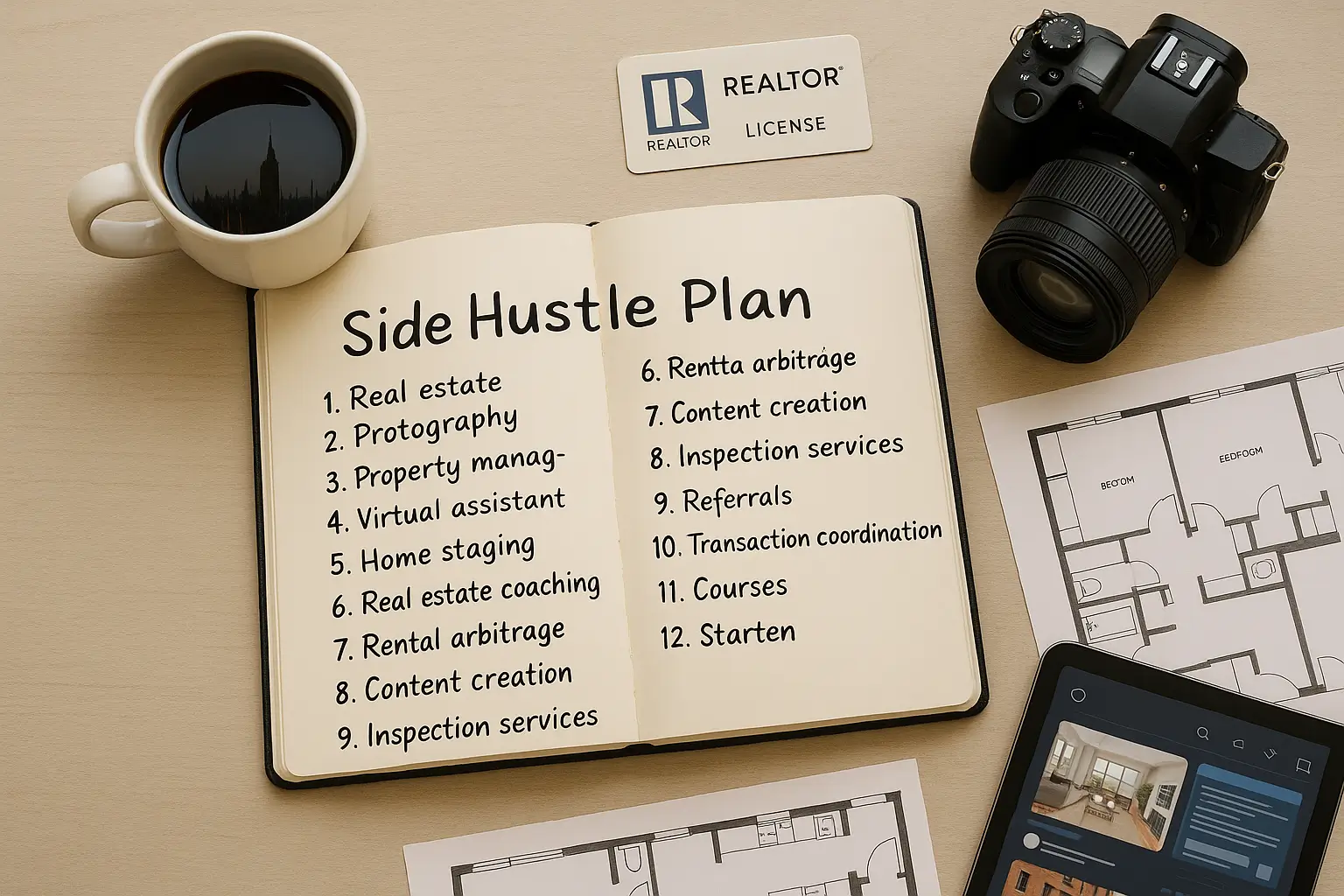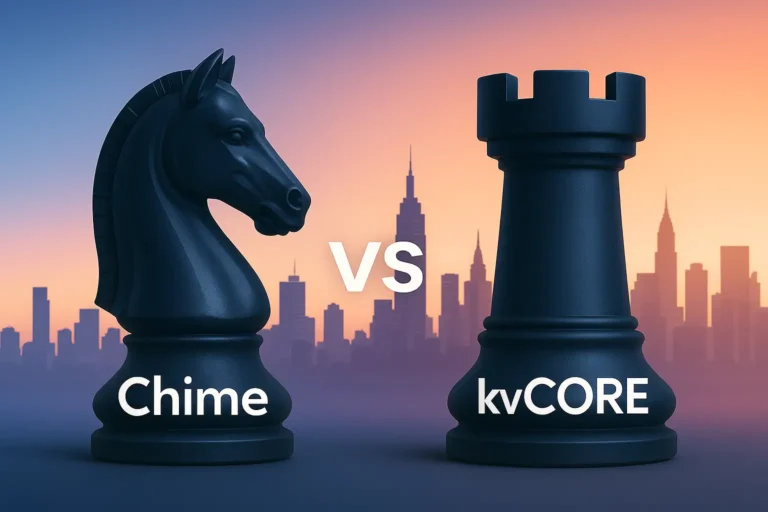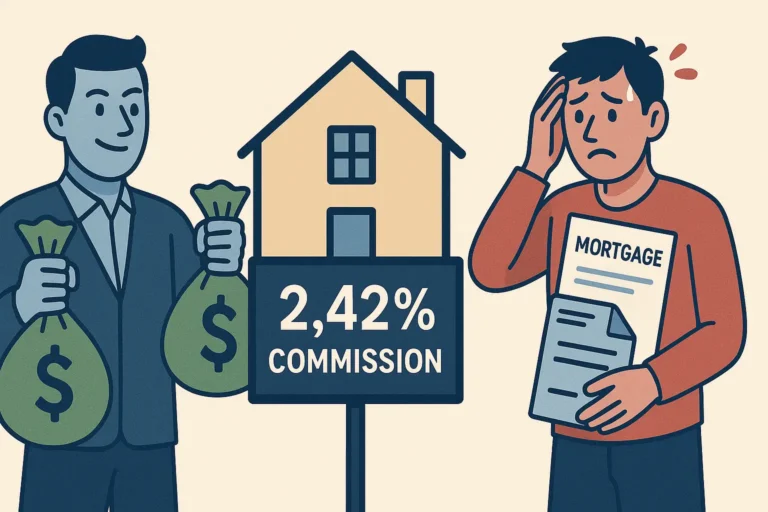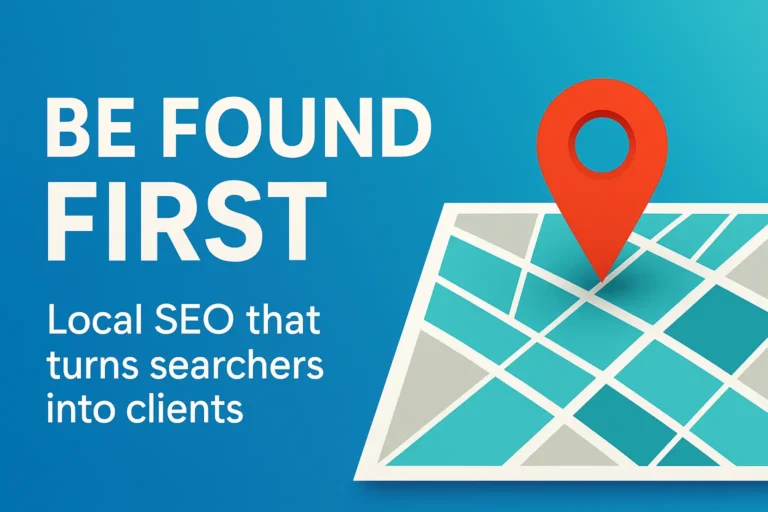The NYC Real Estate Agent’s Guide to Surviving Commission Droughts: 12 Proven Side Hustles That Actually Work
If you’re a New York City real estate agent reading this at 2 AM because you’re stressed about your next commission check, you’re not alone. I’ve been there, staring at my bank account after three months without a closing, wondering how I’ll make rent in the most expensive city in America.
The brutal truth? The NYC real estate landscape has fundamentally shifted. Between the NAR settlement shaking up commission structures, property prices that make clients think twice about every decision, and a rental-heavy market where your commission might barely cover your MetroCard expenses, the old playbook isn’t cutting it anymore.
But here’s what I’ve learned after helping hundreds of NYC agents weather these storms: the agents who thrive aren’t just better at selling real estate. They’re smarter about diversifying their income. They’ve built multiple revenue streams that keep money flowing when the market goes cold.
This isn’t about survival anymore. It’s about building antifragility into your real estate career.
Why Commission Droughts Hit NYC Agents Harder
Let me paint you a picture of what makes NYC uniquely challenging. While agents in suburban markets might coast on two or three big sales per year, NYC agents face a perfect storm of obstacles that make consistent income nearly impossible to predict.
First, consider the numbers. With 69% of New Yorkers renting rather than buying, you’re often fighting for rental commissions that might net you $2,500 instead of the $15,000 you’d make on a sale. That means you need to close six rental deals to equal one modest sale, but rentals require just as much work, if not more.
Then there’s the infrastructure nightmare. Unlike other markets where lockboxes make showings efficient, NYC’s co-op and condo buildings mean you’re coordinating with doormen, managing schedules around board meetings, and dealing with buildings that restrict showing hours. Every showing becomes a logistical chess match.
💡 Market Reality Check: The NAR settlement means buyer agent commissions dropped from an average of 2.61% to 2.55%. On a $1 million property (barely average in Manhattan), that’s $600 less in your pocket per deal.
Most importantly, NYC’s cost of living amplifies every dry spell. When your rent alone is $3,000+ and you’re dealing with expensive licensing requirements, MLS fees, and the constant pressure to maintain a professional image in client meetings at $30-per-drink hotel bars, every month without a closing becomes a financial emergency.
The Mindset Shift That Changes Everything
Before we dive into specific side hustles, you need to understand something crucial: successful NYC agents think like business owners, not employees. They don’t just sell real estate; they run real estate businesses with multiple profit centers.
This shift starts with recognizing that your real estate license, industry knowledge, and professional network are assets that can generate income in multiple ways. Every skill you’ve developed, every relationship you’ve built, and every piece of market knowledge you’ve gained has monetization potential beyond traditional transactions.
The agents who weather commission droughts best have embraced what I call “expertise arbitrage.” They take their specialized knowledge and apply it to adjacent markets where that expertise commands premium pricing.
High-Income Side Hustles That Scale
📸 Real Estate Photography and Videography: Your Golden Ticket
This might be the most overlooked goldmine in real estate. Every property needs visual marketing, yet most agents either use their iPhone or hire photographers who don’t understand real estate.
You have an unfair advantage here. You know what buyers want to see. You understand how to showcase space in cramped NYC apartments. You know which angles make a studio look spacious and how to capture light in north-facing units.
💰 The numbers are compelling. Professional real estate photographers in NYC charge:
- ✅ Standard photography sessions: $400-$800
- ✅ Photography + videography: $700-$1,500
- ✅ Drone shots and 3D virtual tours: $2,000+
I know agents who started with a $1,500 camera setup and now generate $8,000-$12,000 monthly from photography alone. The key is starting with your own listings to build a portfolio, then marketing to other agents once you’ve proven your skills.
🎯 Getting started smartly: Begin with a quality DSLR camera capable of 4K video, invest in wide-angle lenses (16mm and 24-70mm work well for NYC spaces), and learn basic editing software. Consider obtaining FAA certification for drone operations, particularly valuable for luxury properties and unique architectural shots.
💡 Pro tip: Package your services. Instead of just offering photography, create “listing launch packages” that include photos, video tours, and social media content. This positions you as a marketing partner rather than just a photographer.
🏠 Property Management: Building Recurring Revenue
While photography offers quick income, property management builds wealth through recurring monthly payments. In NYC’s tight rental market, quality property management is worth its weight in gold.
💰 The economics are straightforward: Property managers typically charge 8-12% of monthly rent. Manage 20 properties with an average rent of $3,500, and you’re looking at $5,600-$8,400 monthly in recurring revenue.
🤝 The relationship advantage: Start by managing properties for clients you’ve helped purchase as investments. They already trust your expertise, and you understand their investment goals. This organic growth approach builds your portfolio without the aggressive marketing needed to attract strangers.
📈 Scaling systematically: Use technology platforms like AppFolio or Buildium to streamline operations. These tools handle rent collection, maintenance requests, and tenant communication, allowing you to manage more properties without proportional time increases.
⚠️ Reality check: Property management requires 24/7 availability and strong systems for handling emergencies. Start with 2-3 properties to test your processes before scaling. Success depends on your ability to screen tenants effectively and coordinate maintenance efficiently.
💻 Real Estate Virtual Assistant Services: Monetizing Your Expertise
The virtual assistant industry has exploded, but most VAs lack real estate expertise. Your industry knowledge makes you uniquely qualified to provide specialized services that command premium rates.
🎯 Service positioning: Instead of competing with general VAs charging $15/hour, position yourself as a real estate professional providing specialized support. This justifies rates of $35-$75/hour.
💼 High-value service offerings:
- ✅ Lead generation and CRM management
- ✅ Social media content creation focused on real estate
- ✅ Listing coordination and marketing
- ✅ Comparative market analyses
- ✅ Specialized administrative support requiring industry knowledge
🎯 Client acquisition: Target busy teams, investor clients managing multiple properties, and out-of-state investors who need local market expertise. Your NYC knowledge becomes particularly valuable for investors from other markets.
🎨 Home Staging Consultation: Quick Wins with High Impact
Staged homes sell 88% faster and for 20% more than non-staged properties. In NYC’s competitive market, staging often determines whether a property languishes or sells quickly.
💰 Multiple business models: Start with consultation-only services requiring minimal upfront investment. Charge $300-$800 for comprehensive staging consultations that provide specific recommendations. As you grow, add partial staging services or partner with furniture rental companies for full-service offerings.
🎯 Target market strategy: Focus on luxury properties, vacant homes, and properties that have been on the market for extended periods. Develop relationships with estate attorneys handling estate sales, which often need staging to maximize value.
📈 Investment approach: Begin with consultation services using your design eye and real estate knowledge. Gradually invest in key furniture pieces and accessories. Consider partnerships with furniture rental companies to offer comprehensive services without large inventory investments.
Flexible Income Streams for Market Volatility
🎯 Real Estate Coaching and Consulting: Teaching What You Know
Your experience navigating NYC’s unique market positions you to coach other agents, particularly those new to the city or transitioning from other markets.
📈 Revenue structure:
- ✅ Individual coaching sessions: $150-$400/hour
- ✅ Group workshops: $800-$2,500 per session
- ✅ Online courses: $400-$2,000
- ✅ Ongoing coaching programs: $750-$3,000/month
🏆 Specialization advantage: Focus on areas where you have particular expertise. If you’ve mastered co-op sales, teach other agents how to navigate board packages and interviews. If you specialize in luxury markets, coach agents on positioning and client service at that level.
🏢 Strategic Rental Arbitrage: Working Within Legal Bounds
Despite NYC’s strict short-term rental regulations, legal opportunities exist for extended-stay accommodations and corporate housing.
⚖️ Legal framework: NYC prohibits short-term rentals under 30 days unless the host is present. However, corporate housing, extended-stay accommodations, and month-to-month furnished rentals remain viable and profitable.
🎯 Execution strategy: Focus on corporate clients, relocating professionals, and temporary housing needs. Partner with hospitals, universities, and companies that regularly need temporary accommodation for employees, visitors, and relocating staff.
💰 Financial model: Secure long-term leases on well-located properties, furnish them professionally, and market to extended-stay clients at rates 30-50% above your lease costs. Properties in desirable locations can generate $1,500-$4,000 monthly profit per unit.
📝 Content Creation: Building Authority While Earning
Leverage your market expertise to create valuable content across multiple platforms, building authority while generating income through various monetization methods.
📱 Platform strategy:
- ✅ Real estate blog focusing on NYC market insights
- ✅ YouTube videos about neighborhood guides and market trends
- ✅ Podcasts interviewing industry experts
- ✅ Active social media presence sharing valuable market information
💰 Monetization methods:
- ✅ Affiliate marketing for real estate tools and services
- ✅ Sponsored content from relevant businesses
- ✅ Online course sales
- ✅ Consulting opportunities generated through content authority
- ✅ Speaking engagements at industry events
🔍 Specialized Inspection Services: Meeting Market Demand
Property inspections are required for most transactions, creating consistent demand for qualified professionals who understand the real estate process.
📜 Certification path: Obtain certifications from organizations like ASHI (American Society of Home Inspectors) or InterNACHI. NYC requires specific licensing and insurance for inspection services.
🔧 Service expansion: Beyond general inspections, offer specialized services like environmental testing (radon, mold, asbestos), thermal imaging, drone roof inspections, and commercial property assessments.
🎯 Market positioning: Your real estate background helps you understand what agents and clients need from inspections. You can identify issues that impact transactions and communicate findings effectively to all parties involved.
Maximizing Your Real Estate License
🤝 Building Referral Networks
Your real estate license opens opportunities to earn referral income without actively practicing full-time real estate sales.
🌐 Network participation: Join networks like National Realty Referral Group or Leading Real Estate Companies that allow you to maintain your license while earning referral fees. These programs typically pay 20-50% of the referring agent’s commission.
📍 Geographic expansion: Partner with agents in other markets to handle referrals for clients relocating to or from NYC. This creates income opportunities beyond your local market and builds valuable professional relationships.
📋 Transaction Coordination Services
Many agents struggle with the administrative complexity of real estate transactions, creating opportunities for detail-oriented professionals to provide coordination services.
🔧 Service scope:
- ✅ Manage transaction timelines
- ✅ Coordinate inspections and appraisals
- ✅ Ensure document completion
- ✅ Communicate with all parties
- ✅ Handle closing preparations
- ✅ Provide systematic oversight throughout the process
💻 Technology integration: Use platforms like Dotloop, DocuSign, and specialized transaction management software to streamline processes and manage multiple deals simultaneously.
Side Hustle Comparison Chart
| Side Hustle | Upfront Cost | Monthly Income Potential | Time to First Sale | Best For |
|---|---|---|---|---|
| 📸 Photography | Medium ($1.5k gear) | $4k–$8k | 30–60 days | Creative agents with eye for design |
| 💻 Virtual Assistant | Low | $2k–$4k | 7–14 days | Detail-oriented with tech skills |
| 🏠 Property Management | Low | $3.5k–$6k | 60–90 days | Agents with strong systems |
| 🎨 Staging Consultation | Low-Medium | $2k–$5k | 30–45 days | Design-savvy agents |
| 🎯 Coaching/Consulting | Low | $1.5k–$6k | 45–90 days | Experienced agents |
| 📝 Content Creation | Low | $500–$3k | 90–180 days | Long-term thinkers |
| 🔍 Inspection Services | Medium-High | $3k–$7k | 60–120 days | Detail-oriented problem solvers |
💡 Hustle Stacking Strategy Example
How do these side hustles work together?
Here’s a smart progression many successful agents follow:
Month 1-2: Start as a virtual assistant → Learn back-end systems and build initial income Month 3-4: Use connections to offer transaction coordination → Higher hourly rates Month 5-6: Invest VA earnings into DSLR camera and equipment → Add photography services Month 7-9: Build photography portfolio → Expand to videography and premium packages Month 10-12: Launch content creation → Build authority and generate inbound leads
Result: Within 12 months, you have 4 complementary income streams generating $6k-$12k monthly, plus enhanced credibility for your real estate practice.
🔑 Key Strategy: Each hustle builds on the previous one, using both skills and income from earlier stages to fuel growth.
Building Systems for Success
⏰ Time Management That Actually Works
Successfully managing multiple income streams requires systematic time management and clear priority frameworks.
🗓️ Time blocking strategy: Allocate specific time blocks for each business activity. For example:
- ✅ Mornings: Photography shoots (optimal lighting)
- ✅ Afternoons: Real estate clients (when they’re available)
- ✅ Evenings: Content creation or administrative tasks
📊 Seasonal adjustments: Adjust your focus based on real estate market cycles. During slower periods, increase investment in higher-income side hustles like photography or property management. Use busy real estate seasons to build relationships that support your side businesses.
🎯 Quality Control and Professional Standards
📋 Process documentation: Create step-by-step procedures for each service offering, including client onboarding, service delivery, and follow-up processes. This enables delegation and scaling while maintaining quality.
✅ Quality checkpoints: Establish specific quality standards and review processes for each business activity. Poor performance in one area can damage credibility across all services.
Legal and Financial Considerations
🏢 Business Structure and Protection
📄 Entity formation: Consider forming an LLC or corporation to protect personal assets and provide tax advantages. Consult with attorneys and accountants to determine optimal structure for your specific situation and income levels.
🛡️ Insurance coverage: Ensure adequate professional liability, general liability, and equipment coverage for all activities. Some side hustles require additional specialized insurance.
💰 Tax Optimization Strategies
👨💼 Professional guidance: Work with qualified accountants familiar with real estate and small business taxation. Tax strategies for multiple businesses can significantly impact your overall tax burden and cash flow.
📊 Record keeping: Implement systems to track income and expenses for each business activity separately. Maintain detailed records of all business expenses for deduction purposes and quarterly tax planning.
Common Mistakes and How to Avoid Them
⚠️ Overextension Warning Signs
🚨 Recognition indicators:
- ✅ Declining client satisfaction
- ✅ Missed deadlines
- ✅ Feeling constantly overwhelmed
- ✅ Performance decline in primary real estate business
🎯 Prevention strategy: Start with one or two complementary side hustles and master them before adding others. Focus on quality over quantity to build strong reputations that generate referrals and repeat business.
🤝 Conflict Management
📋 Disclosure requirements:
- ✅ Always disclose business relationships to clients
- ✅ Avoid steering clients unless truly in their best interest
- ✅ Maintain clear boundaries between different business activities
- ✅ Review broker agreements and state regulations before launching any side hustle
Value-Adding Frequently Asked Questions
💰 How much can I realistically earn from side hustles during commission droughts?
Earnings vary significantly based on the side hustle chosen and time invested. Part-time photography typically generates $3,000-$7,000 monthly, while property management or specialized VA services can provide $2,500-$6,000+ monthly. Virtual assistant services often start at $1,500-$3,500 monthly. The key is starting with realistic expectations and scaling based on demand and available time. Most successful agents see meaningful income within 3-6 months of consistent effort.
🆕 Which side hustles work best for newer agents with limited experience?
Virtual assistant services, content creation, and referral income are excellent starting points because they leverage your real estate education without requiring extensive transaction experience. Photography and staging consultation require initial learning but can become profitable quickly with proper training and practice. Focus on services that complement your existing skills and allow you to learn while earning.
⚖️ How do I avoid conflicts of interest between my side hustles and real estate practice?
Always disclose any business relationships to clients upfront, avoid steering clients to your services unless genuinely in their best interest, and maintain clear boundaries between activities. Some brokerages have specific policies about ancillary businesses, so review your agreements carefully. The key is transparency and ensuring client interests always come first, regardless of your other business interests.
⏰ What’s the minimum time investment needed to make side hustles worthwhile?
Most successful side hustles require at least 15-20 hours weekly to generate meaningful income. Content creation and referral networks can work with less immediate time investment but take longer to build momentum and consistent revenue. Photography and property management require more upfront time commitment but can generate faster returns. Consider your available time realistically before committing to specific side hustles.
📣 How should I market my side hustle services to other real estate professionals?
Focus on the unique value you provide and your specialized real estate expertise. Network at industry events, maintain a professional social media presence showcasing your work, ask satisfied clients for referrals and testimonials, and consider offering introductory rates to build your initial client base. Your insider knowledge of real estate processes is your primary differentiator from general service providers.
🛡️ What insurance coverage do I need for side hustles like photography or property management?
Professional liability insurance is essential for most side hustles. Photography requires equipment coverage and general liability protection. Property management needs errors and omissions insurance plus bonding requirements. Each activity has specific insurance needs, so consult with insurance professionals who understand your particular combination of businesses to ensure adequate coverage without overlap.
💵 How do I price my services competitively while ensuring profitability?
Research local market rates thoroughly, factor in all costs including equipment, insurance, and time investment, then position based on your unique value proposition. Your real estate expertise often justifies premium pricing compared to general service providers. Start competitively to build reputation and testimonials, then raise prices as demand and expertise grow. Track your time carefully to ensure profitability.
📊 Can I use my real estate CRM and client database for side hustle marketing?
Generally yes, but review your brokerage agreements and privacy policies carefully. Focus on providing additional value to existing clients rather than aggressive cross-selling. Many side hustles naturally complement real estate services, making cross-promotion mutually beneficial. Always prioritize client relationships over short-term revenue from additional services.
🧠 What’s the best way to transition from employee mindset to entrepreneurial thinking for side hustles?
Start by treating side hustles as legitimate businesses with clear goals, documented systems, and measurable metrics. Set aside dedicated work time, invest in proper tools and ongoing education, track financial performance regularly, and continuously improve based on client feedback. The mindset shift from trading time for money to building scalable business systems is crucial for long-term success.
💳 How do I handle client payments and invoicing for multiple side businesses?
Use professional invoicing software like QuickBooks, FreshBooks, or Wave to track income and expenses separately for each business. Establish clear payment terms upfront, accept multiple payment methods for client convenience, and maintain professional financial practices across all activities. Consider separate bank accounts for major side hustles to simplify accounting and tax preparation.
Your Action Plan for Financial Security
The difference between agents who struggle through commission droughts and those who thrive isn’t luck or market timing. It’s preparation and diversification. The strategies outlined here aren’t theoretical concepts; they’re proven systems used by successful NYC agents who’ve built recession-proof income streams.
🎯 Key Takeaways:
- Diversification is survival – Multiple income streams protect against market volatility
- Your expertise has value – Real estate knowledge commands premium pricing in adjacent markets
- Systems scale success – Document processes early to enable growth without quality decline
- Stack strategically – Each side hustle should complement and strengthen your overall business
Start with one side hustle that aligns with your existing skills and interests. Master it completely before adding others. Build systems that allow you to maintain quality while scaling operations. Most importantly, view these not as temporary solutions but as permanent additions to your professional toolkit.
The real estate market will always have cycles. Commission droughts are inevitable. But with multiple income streams supporting your financial foundation, you’ll never again lose sleep wondering how you’ll pay rent next month.
💪 The bottom line: Whether you start with VA work, photography, or content creation, the key is this: You’re no longer just a real estate agent. You’re a business owner with multiple revenue levers. Don’t wait for the next closing. Build something that pays you every month — starting now.
Your expertise is valuable. Your network is powerful. Your real estate license opens doors beyond traditional transactions. The question isn’t whether you can build multiple income streams. The question is which ones you’ll start building today.
The agents who implement these strategies don’t just survive market downturns. They position themselves to acquire market share while competitors struggle. They build wealth during both boom and bust cycles. Most importantly, they sleep well at night knowing their financial security doesn’t depend on their next commission check.
That peace of mind? It’s worth every hour you invest in building these systems. Your future self will thank you for starting today.








2 Comments